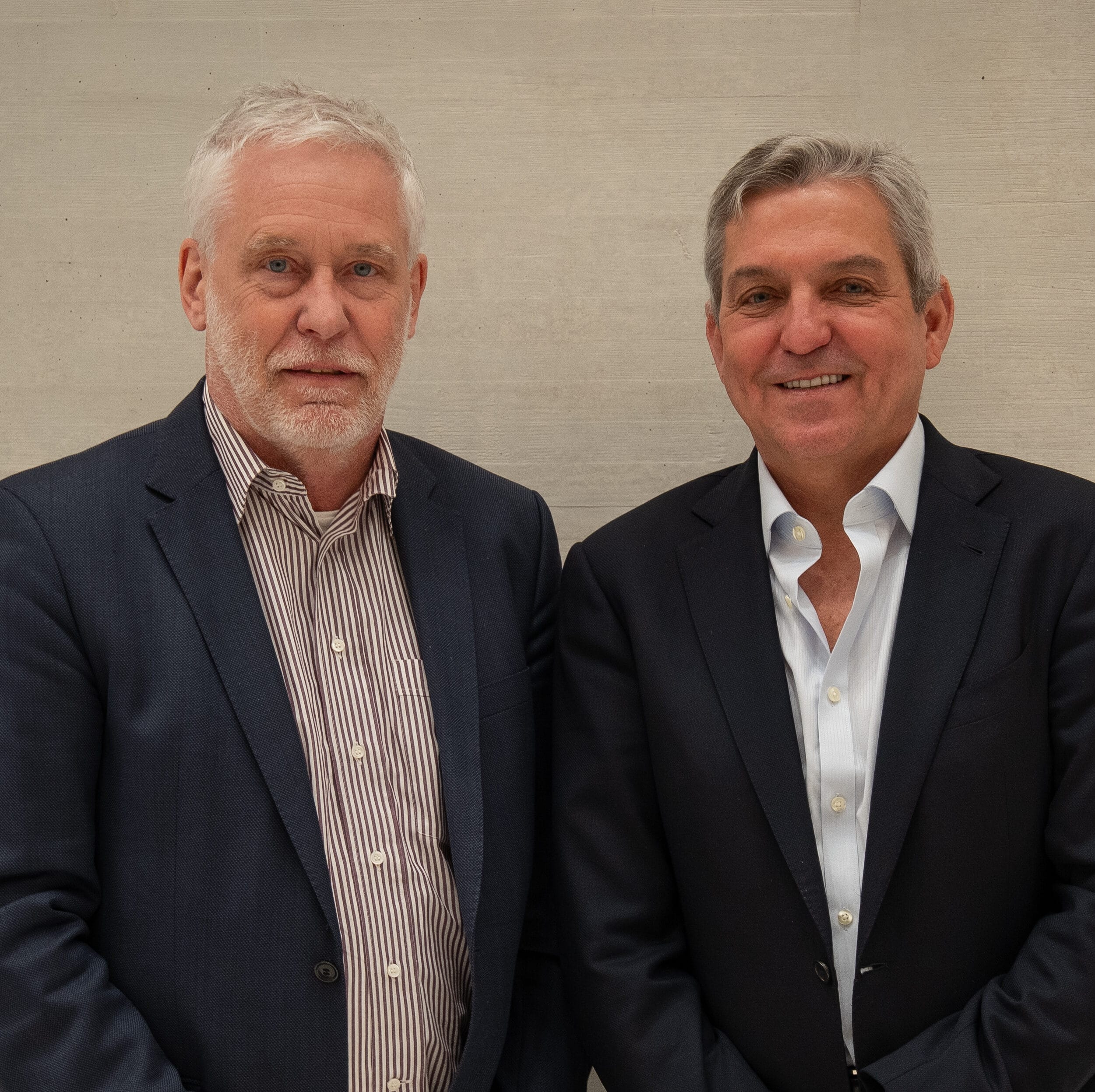Strategic ERP—Thinking and Acting


But ERP is traditionally an IT tool that creates parts lists, balance sheets and invoices from past actions. For many years, the planning and strategic aspect for a successful company future was underdeveloped. Workday delivers visionary, forward-looking concepts from the cloud in the ERP areas of finance and HR.
Around fifty years ago, there was a discussion between Hans-Georg Plaut and August-Wilhelm Scheer on the subject of internal accounting: How often should a balance sheet be prepared? Traditionally, this work is done once a year. Now SAP came into play and with the new ERP software, this process was now possible on a monthly basis - currently, balance sheet figures can be created immediately at any time at the touch of a button.
No matter how often an ERP system is asked to generate balance sheet figures, it is always a backward-looking act. The topic of personnel management was viewed similarly in the ERP environment. The ERP software HR (Human Resources) was primarily used to pay salaries, plan vacations and organize existing staff. In both cases - finance and HR - the strategic component was often missing: active and forward-looking planning. Data is a powerful stimulus for growth when it can be turned into actionable insights: Workday leverages the world's most powerful HR and finance data set to turn insights into results, increase productivity, improve compliance and accelerate decision making at every level.The challenges facing senior management and C-level have fundamentally changed in recent years: No longer should the existing be managed, but the future must be actively shaped. A Workday study shows increasing acceptance of competency-based talent strategies; ERP users are turning to AI and competency-based models to future-proof their own workforce. Workday offers innovative cloud-based finance and HR planning solutions to complement traditional ERP business management. Workday software enhances and complements any ERP application in an excellent way.

From left to right: Peter M. Färbinger, Editor-in-Chief and Publisher, E3 Magazine; Rob Enslin, President and Chief Commercial Officer, Workday.
Uniform data model
"Workday is particularly strong in the finance area for service-based companies. Our clear focus on human capital management (HCM) and financial processes allows us to use a consistent, unified data model - unlike many ERP systems that have to work with different data models," explains Rob Enslin, Workday President and Chief Commercial Officer, in an exclusive E3 interview. "This simplicity gives us a huge advantage, especially when it comes to AI integration. In addition, our model allows for seamless expansion for companies that want to integrate specialized solutions in areas such as supply chain management or customer relationship management." Workday is an AI cloud platform for managing human resources, finance and AI agents. In an IT study commissioned by Workday, managers in Austria and Switzerland stated that they are increasingly relying on skills-based workforce strategies. Companies want to counter the shortage of skilled workers and prepare for a rapidly changing world of work. More than half of managers in the DACH region see the future skills shortage as a major risk - as the "Global State of Skills" study shows and makes clear: traditional approaches to talent management are no longer sufficient.
"This technology must be accessible to all companies, regardless of their size," Rob Enslin defines in an interview with E3 magazine. "Of course, smaller companies will need partners to support them. But the basic tools will be available to everyone. Companies often know exactly what they need - they just need the right partners to implement it." The entire ERP scene will therefore change fundamentally in the coming years: Monolithic systems will give way to a composable ERP with predominantly cloud services, as Workday has been offering for many years. IT consulting will change massively. Rob Enslin: "Traditional ERP consultants who only have modular knowledge will no longer be enough. The future requires experts in data, AI and agent models. This means a fundamental reorientation of many consulting companies."
The Workday study also underlines the crucial role of artificial intelligence in closing skills gaps. In Switzerland, 60 percent of managers already report that they use AI to promote upskilling, while 47 percent use AI to open up new career opportunities. Austrian managers, on the other hand, see the greatest added value of AI in increasing productivity through the automation of routine activities (59%) as well as in personalized learning and individual development (52%). The shift towards skills-based models is gaining momentum across the region.
Mandatory: Native cloud services
Speed will be the decisive factor in composable ERP, which is why native cloud services will also become unavoidable. "Decision-making processes that used to take days or weeks will take place in fractions of a second," says Rob Enslin, describing the new ERP world. "Companies will have to adapt and learn to keep up with the speed of the new technology. This will fundamentally change the competitive landscape." Those who optimize their data models understand that AI is only as good as the quality of the data it has been trained with. "Many companies today still have unstructured or inconsistent data, which makes it difficult to implement AI. Workday has relied on a clean, consistent data model from the outset - this gives us clear advantages today," says Rob Enslin from his professional experience, which includes many years on the Executive Board of SAP.
Workday effectively targets critical business outcomes in productivity, compliance and insights with AI. The key to unlocking business value from AI is to actively transform enterprise operations at the core. Workday leverages deep expertise in human resources and finance to deliver strategic solutions that deliver measurable business value and empower organizations to succeed in the work of the future.
Open IT ecosystem
The entire ERP scene is undergoing a transformation from rigid systems to an open IT ecosystem. Composable ERP based on the latest cloud technology is a good example of this. This dynamic IT development has been triggered not only by the cloud, but in particular by AI. "First of all, I would say that artificial intelligence, as we've seen in the last two years, is going to get exponentially better in the next few years, right?" argues Rob Enslin in the E3 interview. "It may take a little longer than we think. Okay. But I think the results will be much bigger than we think they will be. If I look at Germany, I would look at companies like Siemens who are potentially at the forefront of this. I think we look at traditional AI as a software company. In our minds, that's technology. But I would say Siemens, under the leadership of Siemens CEO Roland Busch, has massively transformed itself into a technology company and is probably leading the way in terms of how you apply AI to your business and how relevant it is to the business, whether it's robotics or software."
At the Viva Technology event in Paris this year, AI was presented as a Gutenberg moment - a technology that is changing processes, society and the economy from the ground up. Savoir-vivre - the art of enjoying life! The French seem to be succeeding in this with information technology: Viva Technology is an annual IT and AI festival in Paris with 180,000 visitors. AI is revolutionizing information technology. SAP is working on evolutionary optimization. Even ex-SAP CEO and current Siemens Supervisory Board Chairman Jim Hagemann Snabe spoke enthusiastically about the possibilities of AI in Paris. VivaTech was a celebration of AI ideas and a meeting of the global IT scene.

"France is a little different when it comes to AI. I think companies that are in the disruptive space are developing in such a different way that they are upsetting older market players."
Rob Enslin,
President and Chief Commercial Officer,
Workday
"France is a little different when it comes to AI," says Rob Enslin. "I think companies that are in the disruptive space are developing in such a different way that they are upsetting older market players." In the ERP scene, the competition between SAP and Workday is omnipresent. SAP is currently moving from "The Innovator's Dilemma" to the "Artificial Intelligence Dilemma". Based on the thinking of author and Harvard professor Clayton Christensen (1952 to 2020), SAP is now a victim of its own success: an almost perfect ERP must be upgraded with artificial intelligence due to the zeitgeist and be composable - Composable ERP. Artificial intelligence requires a radical new start in many areas of IT. How is SAP supposed to bring an established and very successful ERP system through the AI revolution? It's an artificial intelligence dilemma.
"And so the older companies don't really have the capability or the scale to develop this kind of technology," Rob Enslin summarizes the current AI development. "If you look at what's happening with OpenAI and Anthropic, the speed of innovation is incredible. I believe that AI will be one of the big challenges for companies in the future: How can they use AI to stay competitive?" At the VivaTech event, the upcoming AI revolution was equated with a Gutenberg moment. AI is therefore an event that represents a turning point in time. Johannes Gutenberg's printing press was not an optimization of an existing process or a known technology, but a social revolution in knowledge and education. With the printing press, knowledge could be passed on in a new way. It was a democratization of the former knowledge of the rulers. Gutenberg revolutionized the news, information and education system. The saying "knowledge is power" was originally coined by Francis Bacon, an English philosopher who lived in the 16th and 17th centuries. With the Gutenberg moment, knowledge became generally accessible. From this moment on, knowledge was no longer an instrument of power, but could emancipate itself.
"Technological change has created a place where traditional companies are shifting their entire technical development in a new way," explains Rob Enslin. "I mean, all the traditional players like Salesforce, SAP and ServiceNow have made big announcements and moved into the AI space to develop new products. As far as I can remember, the number of engineers developing these applications has never changed so much. And that means that the existing applications will all change. So if you think that what you had yesterday is what you're going to have in the future, that's not true. AI is still in its infancy.
Transformative future
Most of the processes that take place today are still the same as they were ten years ago. "In the future, this will change dramatically," postulates Rob Enslin in an interview with E3 magazine. "The things we've talked about, like co-pilot and other AI tasks, are nice but not really transformative. But in the future it will be transformative. It will change things. I'll give you an example: just look at our new recruitment agent that we announced. You're three to four times more likely to accept a job offer from a company if you use Workday HR."
For ERP users, the question arises as to how a future business structure and process organization can be designed. The challenge is to move from managing resources and logging the past to active and proactive planning. "The big change for Workday is that we probably need to hire more engineers who have an understanding of a different set of skills than just computer programming," Rob Enslin sees the task for himself and the whole ERP scene. "They understand data. They understand patterns. They understand what we call field or engineering. Front engineering, basically. And they're going to be very, very disruptive in what they do. So that will certainly change us. It's also going to fundamentally change the speed at which we develop."
In the ERP scene and with applications from the finance and HR sectors, there is a lot of talk about leading systems that ensure so-called end-to-end processes. The concept of a composable ERP contradicts this theory to some extent. "So I don't think there will be a single leading system, but I think there will certainly be some leading systems," Rob Enslin sees the future ERP development. "If you compare an environment like Salesforce and Workday: Separately, they focus on all services, marketing and sales. We focus on people and finance. Combine it. I would say it's two platforms that customers can have. They'll still have multiple pieces that can be put together, because I think there will still be innovative pieces that we won't do ourselves that don't make sense for us. I think that's how ecosystems will play in the future."







